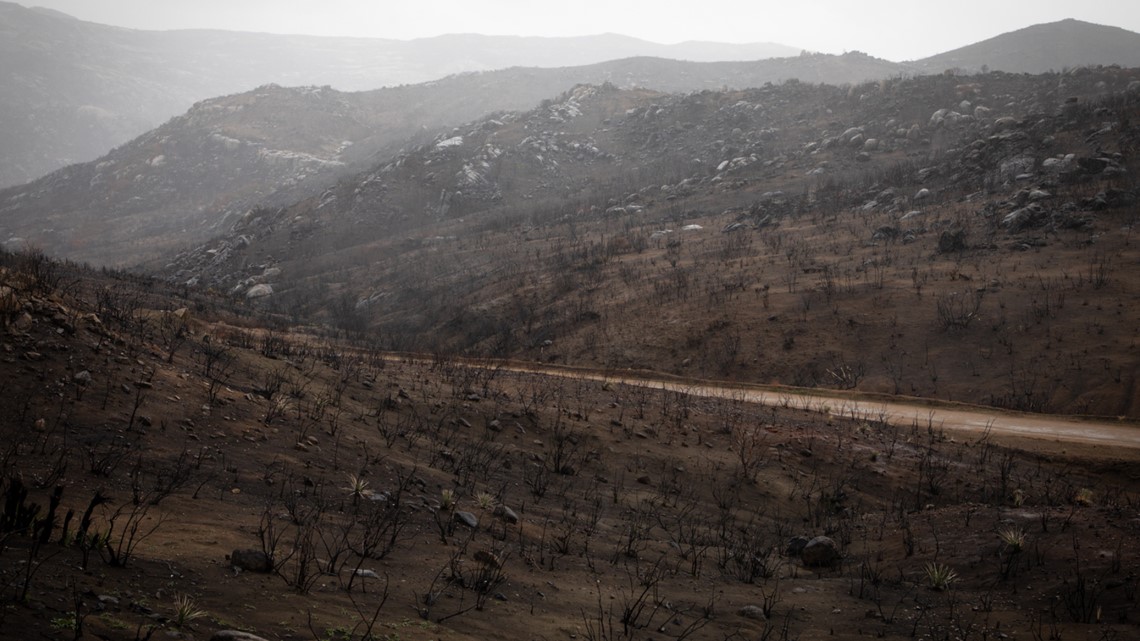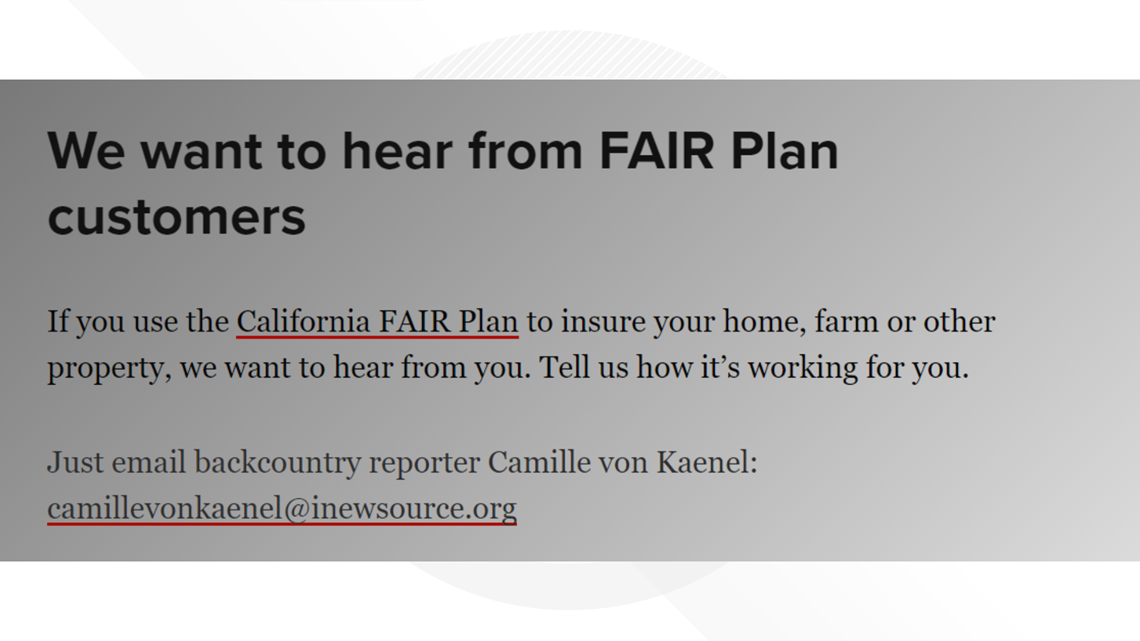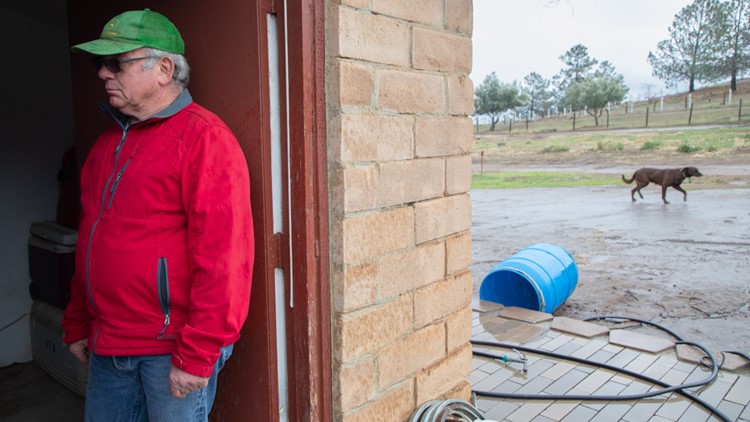SAN DIEGO COUNTY, Calif. — State lawmakers are moving forward with a bill that would give farmers in high fire risk areas like San Diego County’s backcountry an insurance option if no company is willing to cover them.
An Alpine chicken rancher who has seen three brush fires come near his property since 2006 spurred the effort last year when he couldn’t get insurance for a new tractor.
The problem is with the California Fair Access to Insurance Requirements Plan, or FAIR Plan. It’s an insurance pool required under state law to provide bare-bones coverage as a last resort to home and business owners who can’t get insured.
But the law excludes farm risks, leaving an increasing number of farmers with no place to turn for fire insurance.
The new legislative proposal, SB11, would clarify that only crops are excluded from being insured by the FAIR Plan, allowing farmers to insure their buildings and equipment under the policy.
State Sen. Susan Rubio, D-Baldwin Park, introduced the legislation amending the FAIR Plan on March 1 after being lobbied by the California Farm Bureau Federation.
Rubio, who is chair of the Senate Insurance Committee, told inewsource the legislation would make access to insurance more fair for businesses in areas at high fire risk. The committee plans to vote Thursday on the bill.
“I think we all know something needs to be done, and this is just a common sense approach to trying to help our farmers, ranchers and wineries,” said Rubio, who also is co-chair of the Senate’s Wildfire Working Group.


Nathan Rakov, the rancher whose struggles with insurance inspired the effort, said he’s still concerned about a broader crisis as wildfires get more severe and frequent and insurance companies pull out of regions at high risk.
Rubio’s legislation would amend the FAIR Plan, Rakov said, but the cost of the insurance remains high and the coverage is limited.
“As far as a working reality goes, this changes nothing,” he said in an email to inewsource and the San Diego County Farm Bureau.
The problem is much larger and involves all rural property owners, he said.
Rakov also questioned why insurance companies decided to not insure him after he took steps to reduce the fire risk on his ranch by creating an 800-foot buffer of empty space around his buildings by letting his animals graze on the land. He said insurers should give more weight to those kinds of actions in setting rates.
Problems in the insurance market
Anneliese Jivan, president of the FAIR Plan Association, encouraged lawmakers at a March 11 hearing to pass Rubio’s bill. Otherwise, she said, the FAIR Plan wouldn’t be able to insure farmers.
If the measure passes, it’s not known how quickly farmers would be able to get the insurance. The FAIR Plan would first have to develop the farm coverage policy, which would then need the state Department of Insurance’s approval.


Jivan urged lawmakers to make other insurers also write more policies in fire-prone areas so that fewer people are having to turn to the FAIR Plan.
“I jokingly say pretty regularly, ‘I work in (an) opposite world,’” she said. “I probably run the only company that, really, success is measured by a shrinking portfolio and a shrinking customer base, because that is actually a sign of a very healthy voluntary or private market. At the moment, that's not the case.”
A Department of Insurance official told lawmakers the agency is going to start collecting data about commercial insurance cancellations, which would give a more complete picture of insurance in high fire risk areas.
The agency already collects and publishes similar data for homeowner insurance, which shows residents in those areas are increasingly getting their policies canceled.
For now, insurance data on farms and other businesses is mostly anecdotal, though the Department of Insurance official told lawmakers the agency has noticed fewer insurers filing to cover agribusinesses, suggesting a shrinking market.
The state farm bureau says it knows of about 500 farmers in Napa, Sonoma, Monterey and San Luis Obispo counties who have been unable to renew their insurance policies since 2019. At least 15 in Sonoma and 10 in Monterey also got rejected for the last-resort coverage from the FAIR Plan.
The state group led the effort to change the insurance law after the head of the San Diego County Farm Bureau asked for help for Rakov.
Robert Spiegel, a lobbyist for the California Farm Bureau Federation, said the rejection letters it has collected from Rakov and other farmers proved the crisis was real.
“This was a much larger issue than what was originally known and increased the urgency to find at least a partial solution,” Spiegel said.
How to tune in to fire insurance hearing
The state Senate Insurance Committee will meet Thursday to consider voting on SB11, which would give farmers access to last-resort fire coverage. The time of the hearing has not yet been set.
The hearing will be livestreamed on the Senate’s website. The public can listen and testify by phone by calling (844) 291-6364 and using the access code 8610185.
Written testimony can be submitted by clicking here.
WATCH: San Diego County Farm Bureau says impact of pandemic on the industry has been 'catastrophic'



